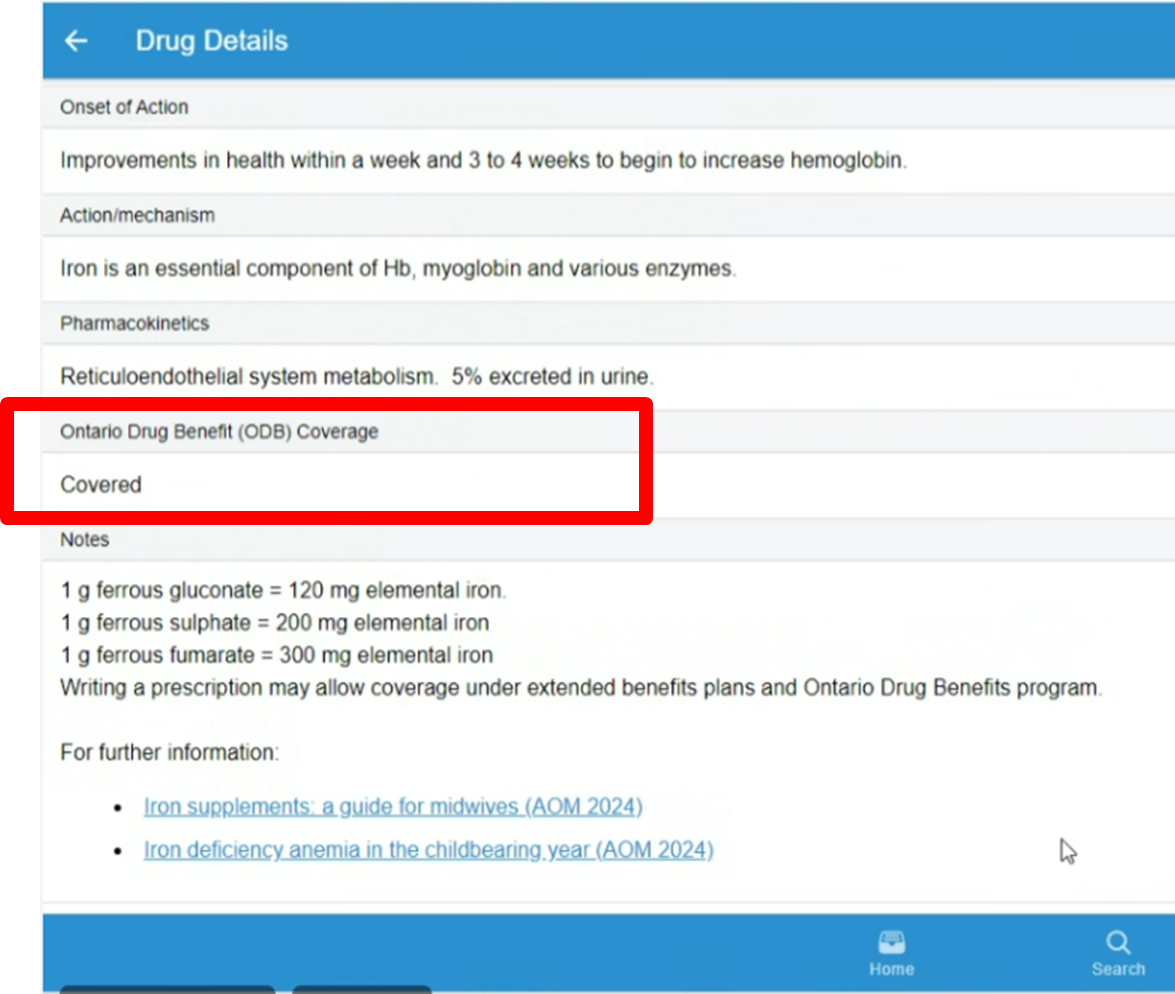Clients Living in Poverty
The pressures of the pandemic and economic inflation are impacting more families, including those that may not be considered below Ontario’s poverty line. During pregnancy, midwives can bridge clients to ongoing primary care, as well as facilitate links to non-clinical services that can support clients’ health and well-being. This approach to providing care is called social prescribing.
Resources
Supporting Clients Living in Poverty (PDF 1.5 MB)
This updated toolkit provides practical tips for midwives and their practice sites to support clients living in poverty. The resource has three parts:
- How midwives can intervene by asking screening question, and adopting social prescribing
- How practices can intervene by learning about and offering community resources such as the list of prenatal education and parenting supports available province-wide.
- How to support clients receiving social assistance including details on various benefits available to pregnant and parenting individuals who access Ontario Works (OW) and the Ontario Disability Support Program (ODSP)
Supporting Clients Receiving Social Assistance (PDF 337 KB)
This resource provides easy access to information on the various benefits available to pregnant and parenting individuals who access Ontario Works (OW) and the Ontario Disability Support Program (ODSP)
Template Letter - Ontario Works Approval of Benefits (DOCX 24.4 KB)
This fillable template letter downloads as a word document and can be used by practice groups to help clients access the transportation allowance through Ontario Works by detailing the number of pregnancy related appointments they are attending.
This Association of Ontario Midwives webinar highlights key considerations for supporting clients living in poverty. These case studies are used to identify and reflect upon strategies for midwives and practice groups to support clients.
General suggestions for supporting clients living in poverty
How can midwives stay current and maintain skills and knowledge?
If lower resourced people are infrequently seen in the midwifery practice, it is harder for midwives to stay current and maintain skills and knowledge, such as knowing what would be covered by social assistance programs. Building a strong relationship with social workers and community organizations will help midwives support their clients.
How can midwives screen for and assess client needs?
Ask questions at intake, when completing the forms such as the perinatal record or Healthy Babies, Healthy Children, and during ongoing care. Ask clients if they have filed their taxes. Clients cannot access programs such as Ontario Works if they have not filed their taxes. Use this tool to identify additional benefits for your clients.
Consider what is represented or promoted to clients in the questions that you ask. For example, take an inclusive approach with respect to counselling on supplements or lactation supports/ formula knowing that it may be costly for some, and preferences vary.
How can midwives facilitate warm connections and support clients?
Proactively advocate for clients and assist with systems navigation. This could mean calling caseworkers directly on behalf of clients. Cultivate relationships with social workers, public health nurses and community pharmacists who work at CHCs or other community organizations to support timely referrals and access to resources. Establishing a workflow for the practice may streamline processes and make it easier to connect and advocate for clients.
One practice set up a discretionary fund to support low/lower-resourced clients in collaboration with their hospital. The hospital has charitable status and can issue receipts to donors, making it easier to manage and distribute funds.
Be aware of resources available for Indigenous clients, specifically. Midwives can support Indigenous clients to access resources such as the Non-Insured Health Benefit (NIHB), Indigenous Healthy Babies Health Children program, and Jordan’s Principle.
Midwives should note that the list of providers and/or staff involved in service delivery of these programs are not vetted by community, and that NIHB includes First Nation and Inuit people, but does not include Metis people.
Can undocumented clients access benefits programs?
In most cases they can. The Health Network for Uninsured Clients (HNUC) has compiled resources on supporting undocumented folks access programs such as how to apply for OW & ODSP. Visit the website to find more here.
What employment benefits exist for pregnant individuals?
Employment impacts eligibility and access to benefits for pregnant people. This includes if pregnancy complications arise, clients wish to take parental leave after birth, or need sickness benefits if experiencing pregnancy loss. Learn more about eligibility for benefits.
How can I find out if medicines are covered?
In the screenshot below, you can see where to find this information on the AOM Rx App. For example, oral iron is generally covered. The AOM also has a resource on oral iron sources, listing their costs and other information that may help clients who are not receiving social assistance.
For more detailed information on specific medicines and related coverage, check the Ontario Drug Benefit Formulary to search individual products.

How can I support clients and/or their children access dentistry or optometry care?
- NIHB coverage can be accessed for Indigenous clients that have status, and includes dentistry and optometry services.
- Healthy Smiles is a Public Health Program for children and youth 17 and under that need dentistry.
- Eye exams for children and youth are covered in Ontario. Eyeglasses for kids born in 2019 and 2020 may be covered through the Eye See...Eye Learn Program.
- The Canada Dental Benefit can be used for adults that need dental care. Taxes must be filed, and the amount received is dependent on the client’s income.
- The OneSight Voucher Program offers coverage for eyeglasses for adults. To access, an organization (E.g. CHC) screens and refers clients to the program. LensCrafters, Sears Optical and Pearle Vision participate in this program.
- Some CHCs will provide dental care but some will not. Similarly, some dentists will accept OW/ODSP but most will not or are unfamiliar with the process. Some dental groups may have a roster of dentists in the community that accept OW/ODSP, but it may take relationship-building with those in your area to find willing dentists.
- There are navigator organizations that can facilitate access to Jordan’s Principle, including coverage for groceries, mattresses, clothing as well as medical coverage etc. but some can be faster than others. You can also contact staff liaisons for your area to coordinate access, available 24/7 at 1-855-JP-CHILD.


